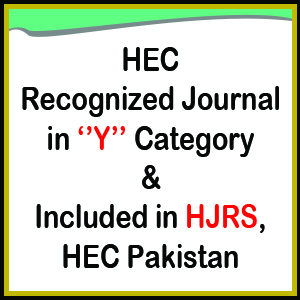Socioeconomic Status, Gender, and Politeness Strategies: Studying the Usage of Request Speech Act in Pakistani Undergraduate Students
DOI:
https://doi.org/10.47067/reads.v7i2.366Keywords:
Politeness, Informal, Formal Politeness, Politeness TheoryAbstract
Politeness strategy has non-linguistic as well as linguistic apprehensions. Moreover, it is observed as part of the sociolinguistics and conversational competency of the orators of a particular language. This recent study investigates the politeness strategies in the context of Punjabi language. The goal is to classify the politeness strategies as a part of Pakistani set culture particularly with reference to Punjabi language context. To make this study valid, Brown and Levison’s (1987) framework is employed as a ration ground for this study. The variable of gender and socioeconomic factors has been analyzed to investigate the impending result by stalking down the politeness strategies especially in Pakistani culture context. A survey was conducted through an open ended questionnaire. For this study (DCT) Discourse conclusive test is selected as a modified version. A group of 120 people which is comprised of male and female native speakers of Punjabi language are selected. This study investigates that in Pakistani culture particularly with reference to Punjabi language, people tend to remain informal when making requests which can be classified as informal politeness strategies. This study investigates socioeconomic status of Punjabi language speakers both male and female by not making in gender specific. Through this study frequency of politeness strategies has been undergone in Punjabi language.
References
Blitvich, P.G.C. (2013). Introduction: Face, identity and im/politeness. Looking backward, moving forward: From Goffman to practice theory. Journal of Politeness Research, 9, 1–33. Brown, P., &
Levinson, S. (1978). Politeness strategies in social interaction. Cambridge: Cambridge University Press.
Brown, P., & Levinson, S. (1987). Politeness: Some universals in language use. Cambridge: Cambridge University Press. Cameron, D. (2001). Working with Spoken Discourse. London: Sage Publications.
Fukada, A., & Asato, N. (2004). Universal politeness theory: application to the use of Japanese honorifics. Journal of pragmatics, 36, 1991-2002.
Haugh, M. (2007). The discursive challenge to politeness research: An interactional alternative. Journal of Politeness Research: Language, Behaviour, Culture,3, 295–317.
Holmes, J. (1992). An Introduction to Sociolinguistics. Harlow: Longman. Ide, S. (1989). Formal forms and discernment: two neglected aspects of universals of linguistic politeness. Multilingua, 8, 223–248. Lakoff, R. (1973). The logic of politeness: or, minding your p’s and q’s. Papers from The 9th regional meeting. Chicago linguistic society, 292-305.
Locher, M. (2004). Power and politeness in action: disagreements in oral communication. NewYork: Mouton de Gruyter.
Odlin, T. (1989). Language transfer: cross-linguistic influence in language learning. Cambridge: Cambridge University Press.
Shams, Kazerooni (2015) Gender, Socioeconomic Status, and Politeness Strategies: Focusing on Iranian High School Students’ Usage of Request Speech Act: Journal of Applied Linguistics and Language Research
Yu, M.C. (2003). On the universality of face: evidence from Chinese compliment response behavior. Journal of Pragmatics, 35, 1679–1710.








